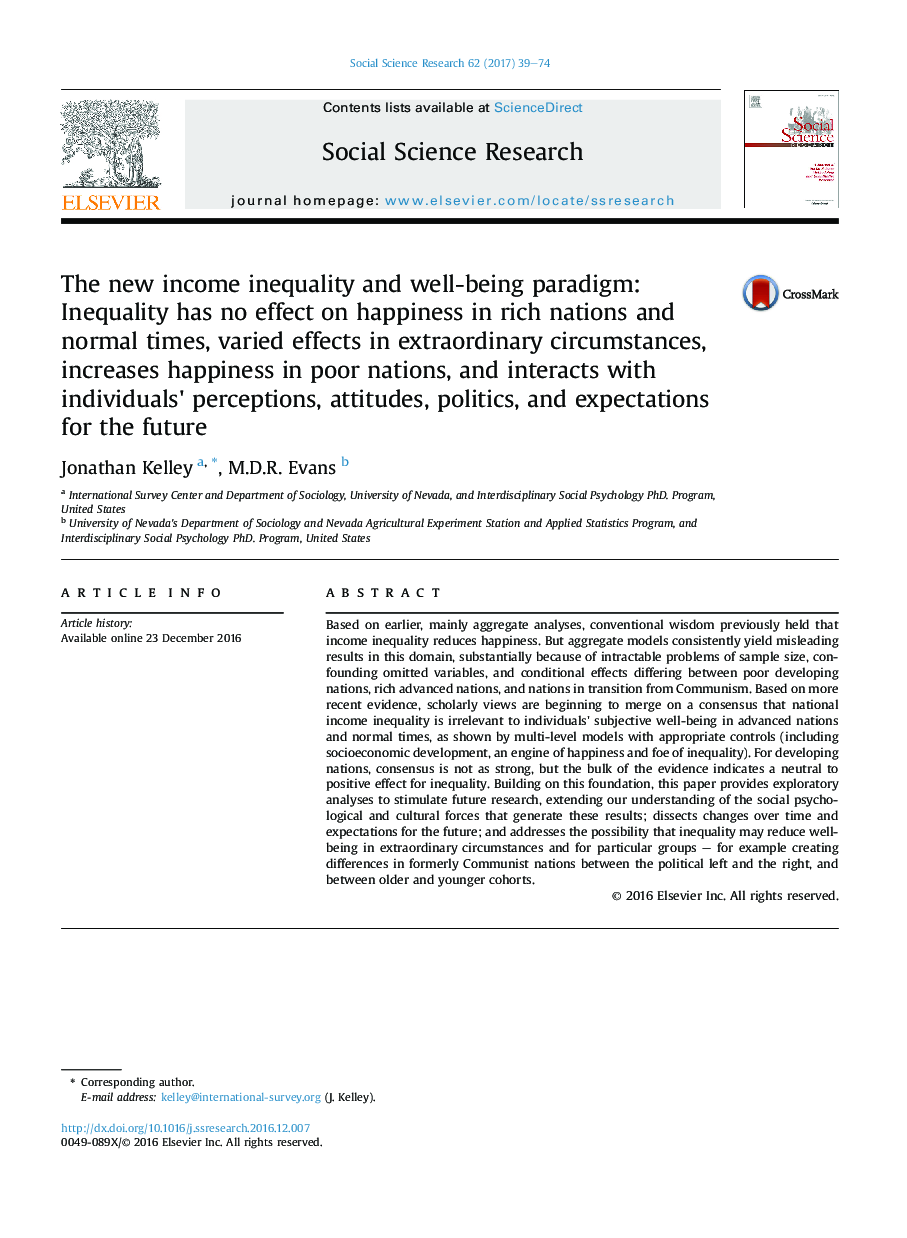| Article ID | Journal | Published Year | Pages | File Type |
|---|---|---|---|---|
| 5047034 | Social Science Research | 2017 | 36 Pages |
Based on earlier, mainly aggregate analyses, conventional wisdom previously held that income inequality reduces happiness. But aggregate models consistently yield misleading results in this domain, substantially because of intractable problems of sample size, confounding omitted variables, and conditional effects differing between poor developing nations, rich advanced nations, and nations in transition from Communism. Based on more recent evidence, scholarly views are beginning to merge on a consensus that national income inequality is irrelevant to individuals' subjective well-being in advanced nations and normal times, as shown by multi-level models with appropriate controls (including socioeconomic development, an engine of happiness and foe of inequality). For developing nations, consensus is not as strong, but the bulk of the evidence indicates a neutral to positive effect for inequality. Building on this foundation, this paper provides exploratory analyses to stimulate future research, extending our understanding of the social psychological and cultural forces that generate these results; dissects changes over time and expectations for the future; and addresses the possibility that inequality may reduce well-being in extraordinary circumstances and for particular groups - for example creating differences in formerly Communist nations between the political left and the right, and between older and younger cohorts.
